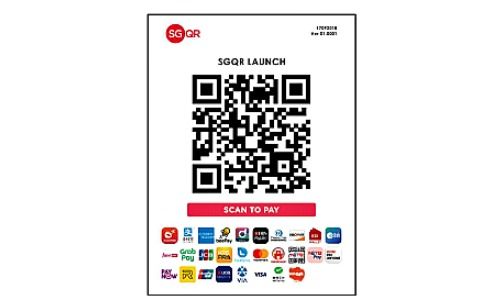Singapore Unveils Single QR Code
The Hardest Part
Step four, enabling (C2B) payments, was the hardest part because most consumers would not know the UEN code of the store. Hence, industry players decided to capture the UEN and other payment details in a QR code, which allow consumers to scan with their mobile phone when making payments.
The proliferation of QR codes had led to confusion amongst users, which is why the government decided to launch the SGQR, a standardized QR code.
Fintechs Can Soon Plug In
Following SGQR, the government is developing the next piece in the national e-payments infrastructure by giving access to e-wallet players, so that they too, can tap on it to bring greater convenience to consumers. «We will be forming a Direct FAST industry working group, comprising the operator of FAST, banks, non-banks, and MAS, to develop business and technical requirements for non-banks to connect directly to FAST,» Ong said.
So far, Grab, Liquid Group, MatchMove, Razer and TransferWise have signed up for this working group.
But Restrictions Apply
However e-wallets operating in Singapore will not be allowed to take deposits or do lending, unlike the payment giants operating in China or elsewhere. «E-wallets are regulated under a much simpler framework that has been calibrated to payment activity, and only the risks that payments pose. E-wallets are not regulated like banks, so they cannot operate like banks, such as taking deposits or giving loans,» Ong said.
The government will be seeking expressions of interest to build and operate a FAST Aggregator. The aggregator's role is to lower costs by aggregating technical requirements across different players.
Personal Safety
Although the government has put in place guidelines to reassure users of fair handling by financial institutions, users are advised to be careful and vigilant about unauthorised transactions.
«Safety is most dependent on good personal cyber hygiene. When it comes to our physical wallets, we will not carry too much physical cash in them, in case we lose our wallets. We should do the same for our e-wallets,» Ong cautioned.
- << Back
- Page 2 of 2



























